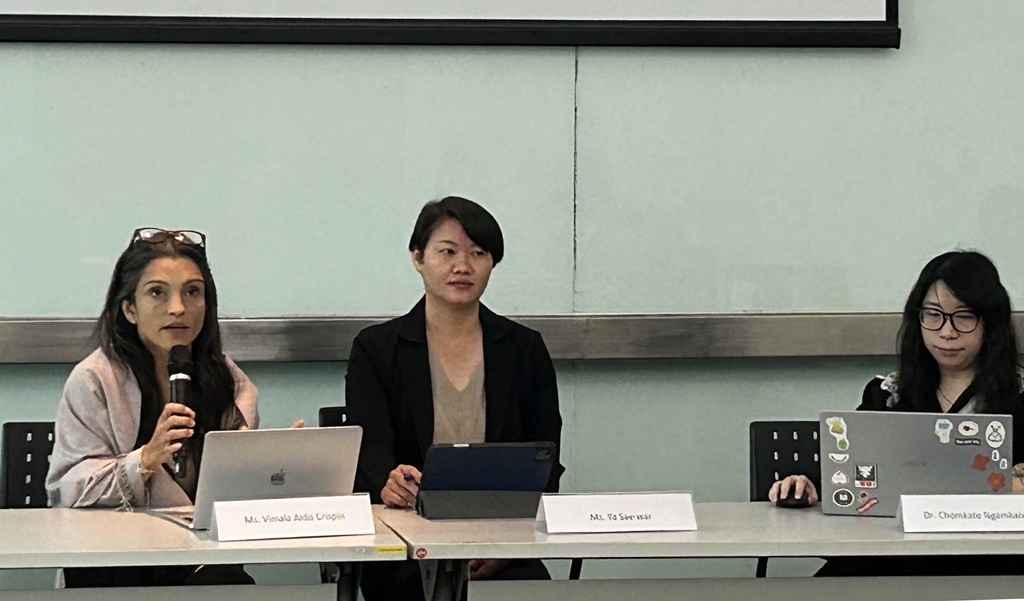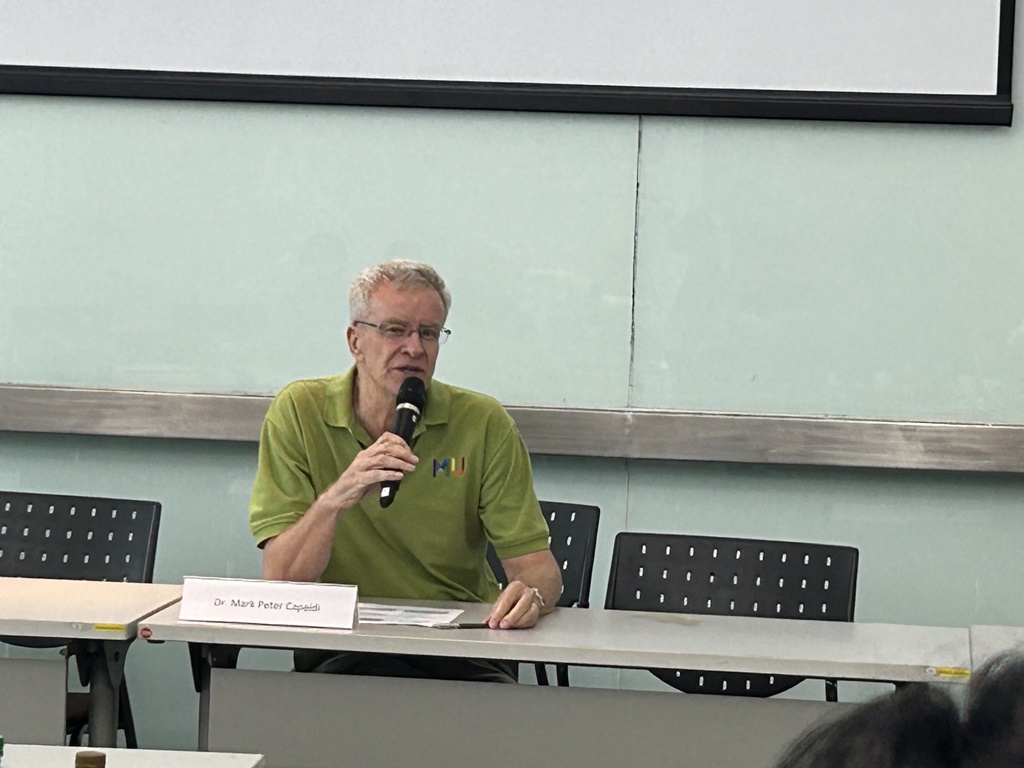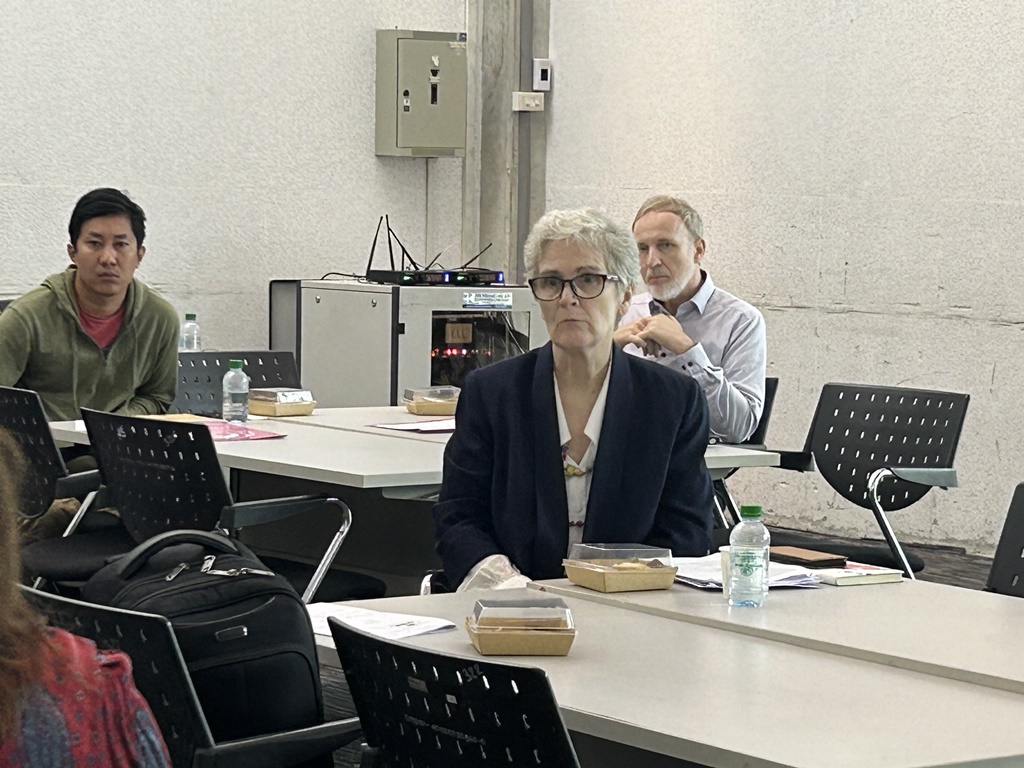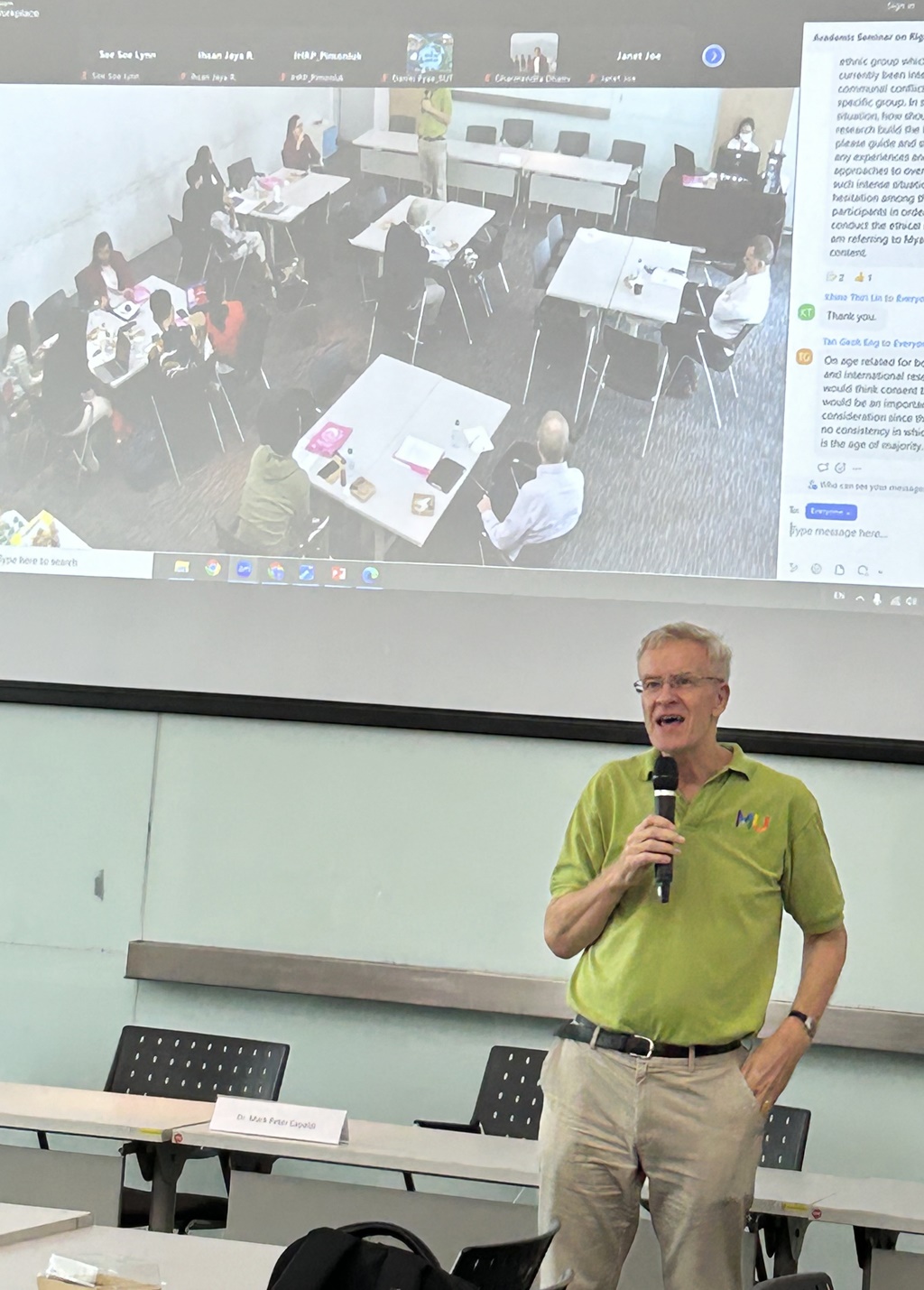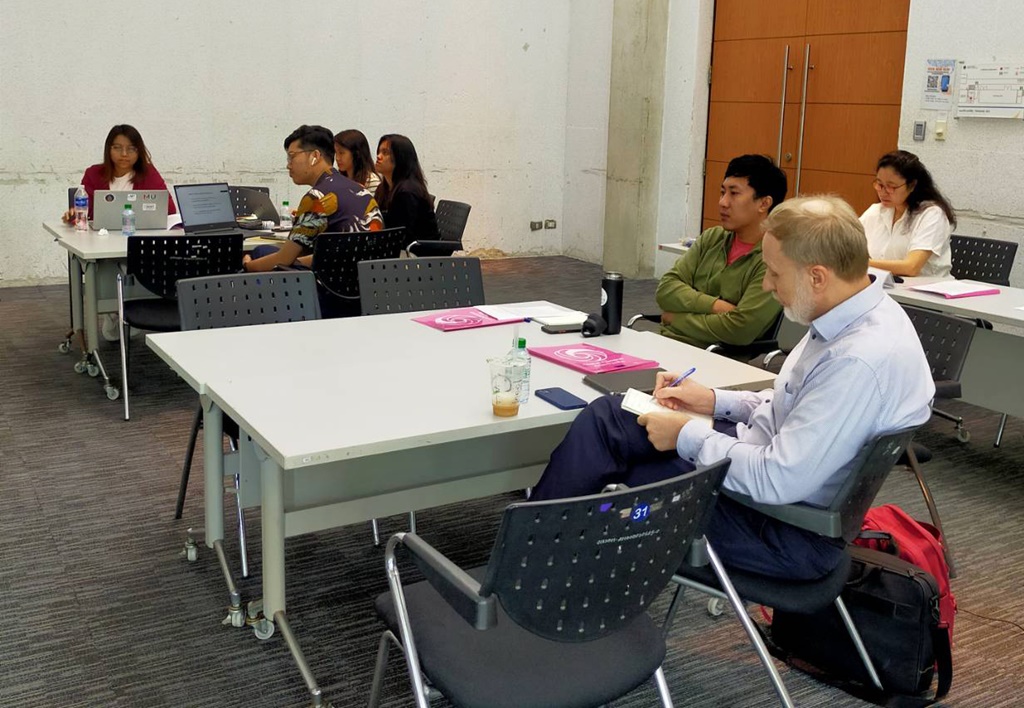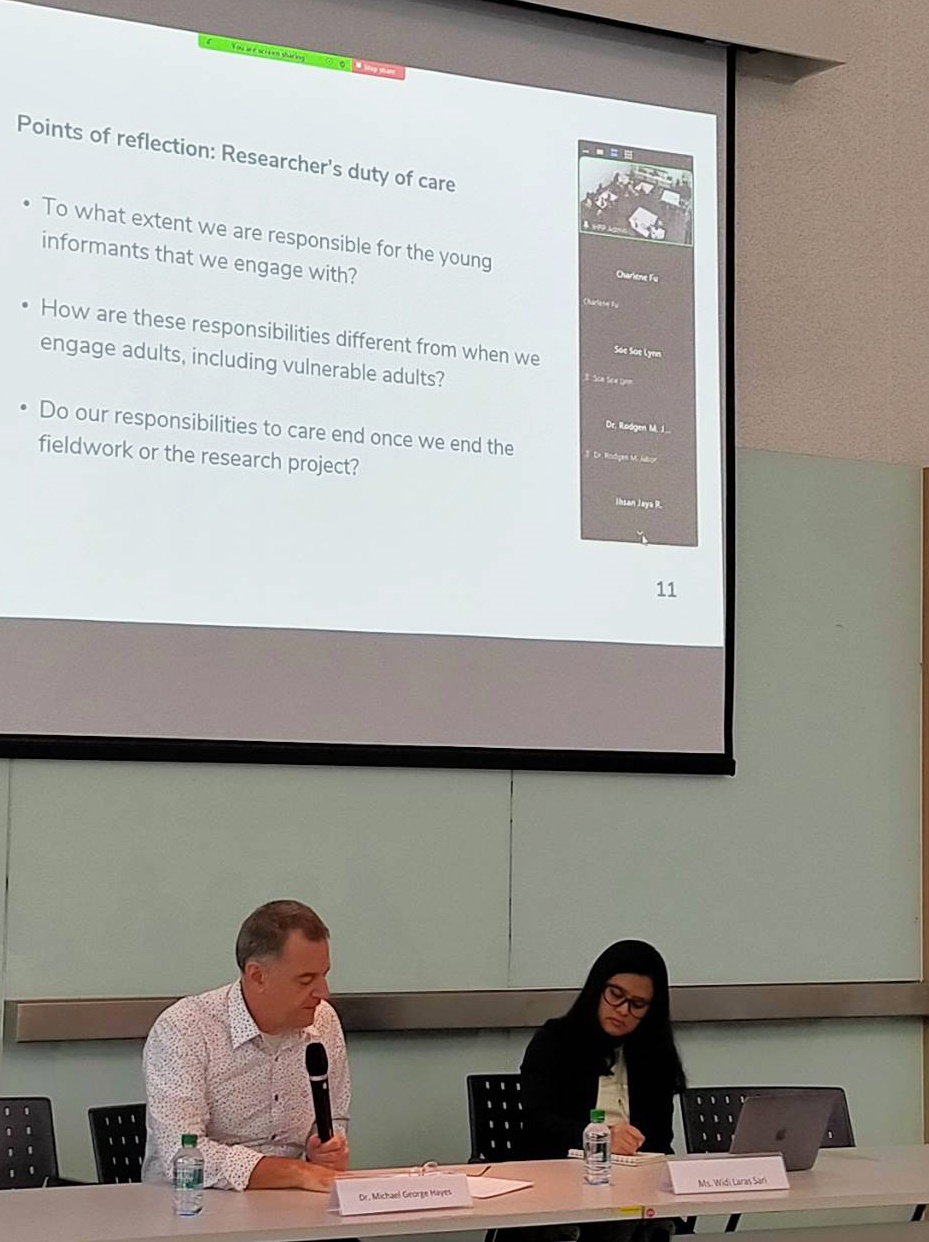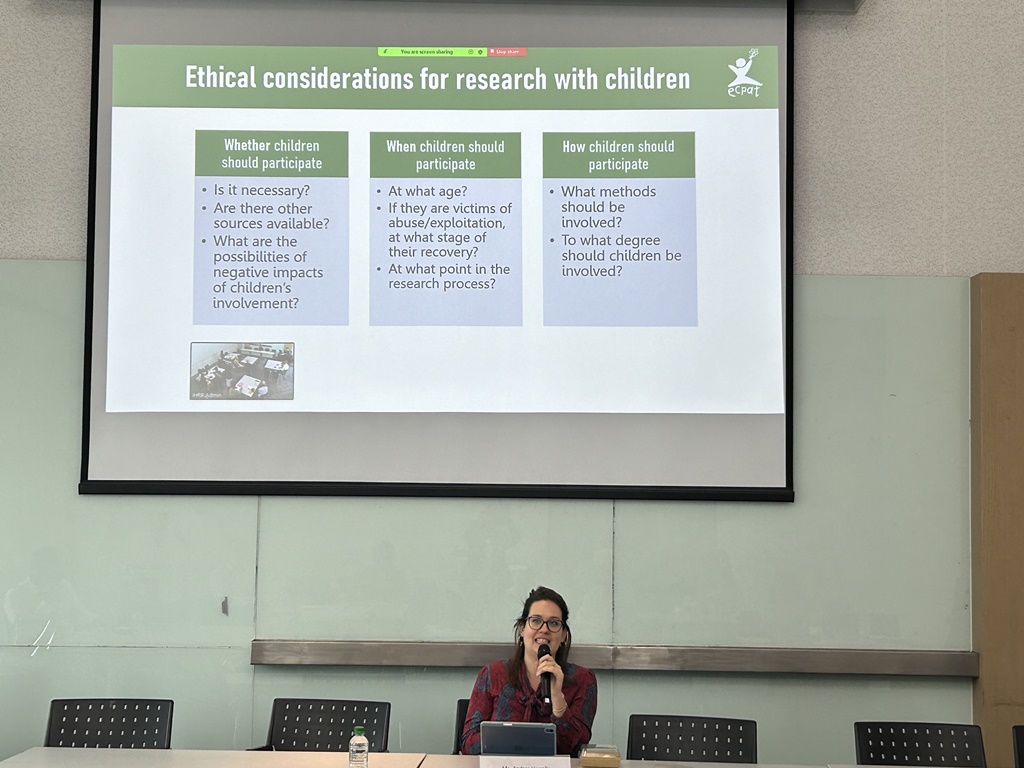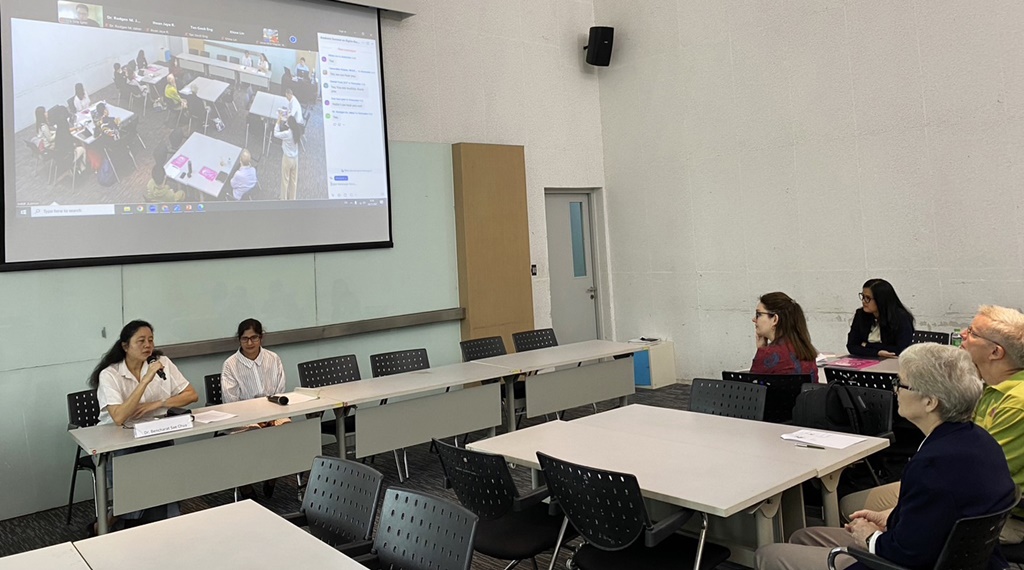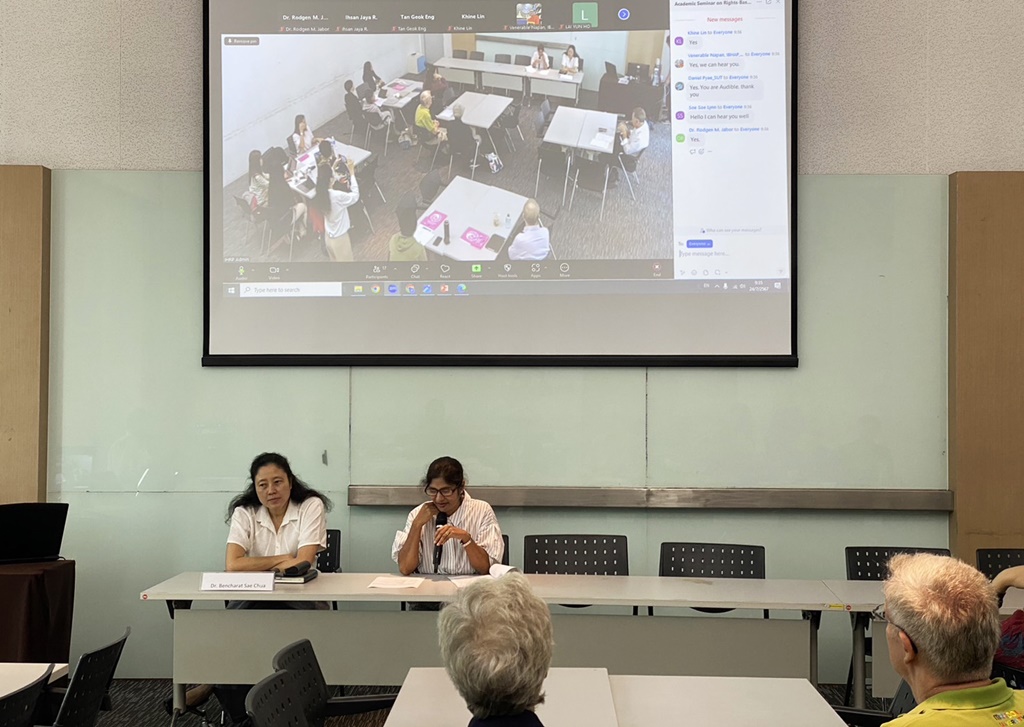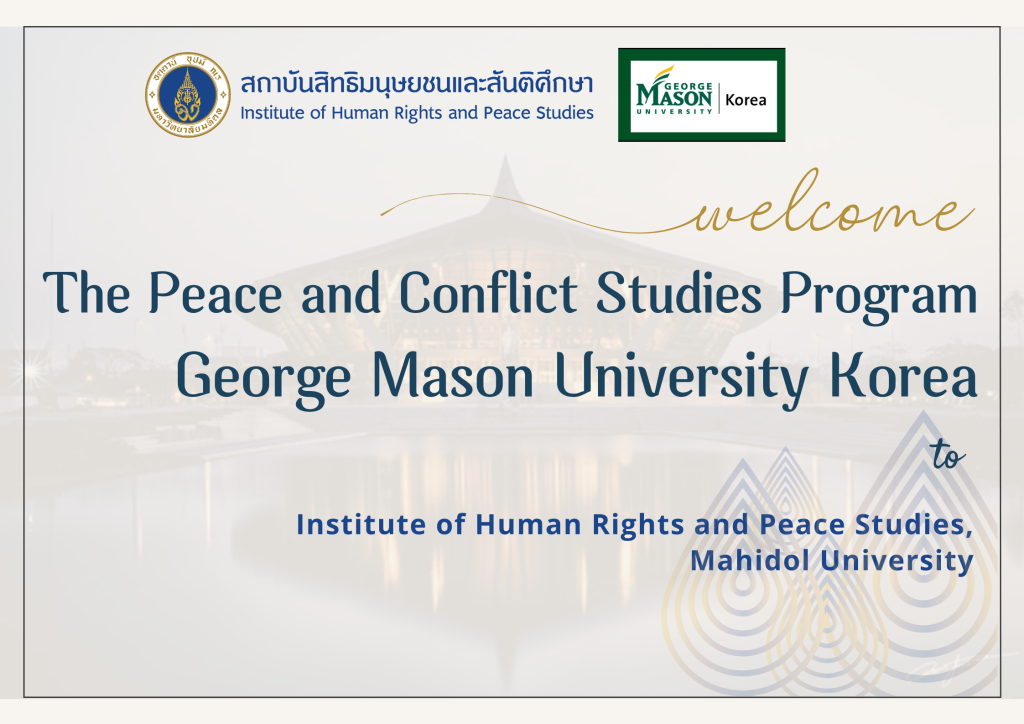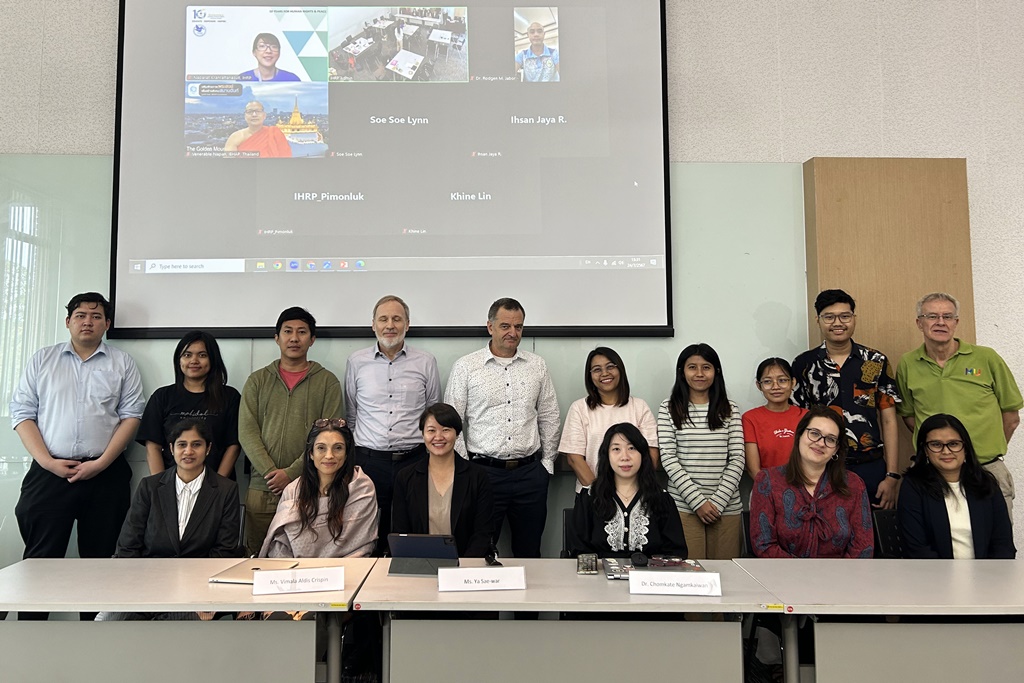
On July 24, 2024, the Global Campus of Human Rights – Right Livelihood organized an academic seminar on research ethics titled “Rights-based Ethical Research with Children and Vulnerable Groups” at Mahidol Learning Center, Mahidol University, Salaya. The opening remarks were delivered by Dr. Bencharat Sae Chua. The seminar highlighted the importance of developing rights-based ethical mechanisms to protect vulnerable groups, particularly when conducting research involving youth and children.
The seminar also discussed the gaps in the Institutional Review Board (IRB) processes, which are primarily scientific-based and often focus on researching adults, rather than social sciences and vulnerable populations. Questions were raised about managing accountability, transparency, and sensitivity in such research, while also mitigating risks and potential setbacks. One of the key takeaways was the importance of providing a safe space and security for participants, using the most comfortable approach possible. It also emphasized considering the sensitivity of the research while addressing the challenges of ensuring the reliability of findings and solutions.
The seminar included discussions on various topics related to social, cultural, and rights-based research contexts with vulnerable groups. These discussions were delivered by:
- Ms. Widi Laras Sari from PUSKAPA Indonesia on the social, cultural, and rights-based research context with vulnerable groups.
- Ms. Andrea Varella from ECPAT International on the benefits and challenges of research ethical guidelines.
- Dr. Mark Capaldi, Lecturer from IHRP, on how to make risk-benefit assessments work.
- Ms. Vimala Aldis Crispin and Ms. Ya Sae War from Child Frontiers, Thailand, on obtaining ethical clearance for open-ended research processes.
The discussants for each session were Dr. Mike Hayes, Dr. Charlene Fu, and Dr. Chomkate Ngamkaiwan. The seminar concluded with a thematic discussion on exploring the strengths and weaknesses of the IRB process.

